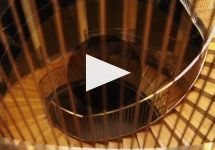Marchesi Antinori Peppoli Chianti Classico 2022
-
Jeb
Dunnuck -
Wine
Enthusiast - Vinous
-
Wine
Spectator
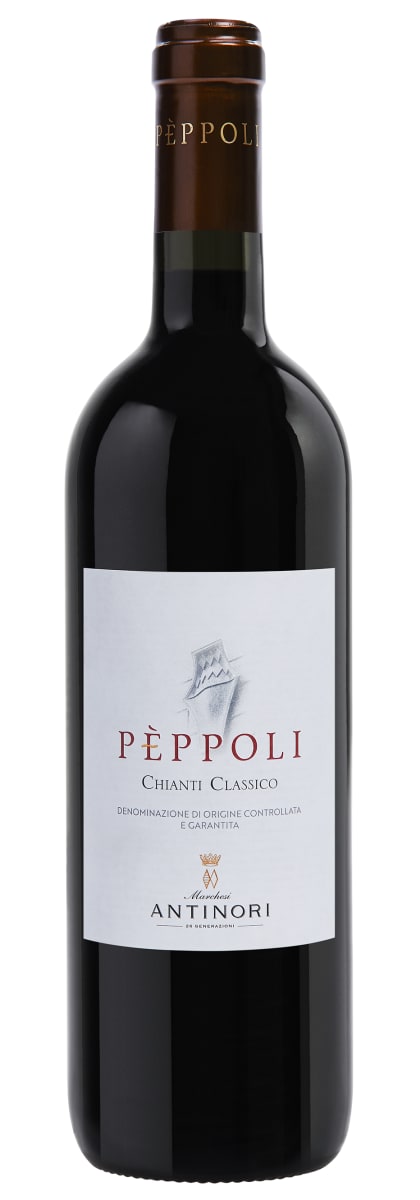


Product Details
Your Rating
Somm Note
Winemaker Notes
Professional Ratings
-
Jeb Dunnuck
The 2022 Chianti Classico Peppoli is a youthful ruby magenta, and is highly expressive with lively aromas of grenadine, tangerine, fresh flowers, and fresh oregano. This carries seamlessly to the palate keeping all the buoyant vibrancy and fruit through a well-balanced and polished finish. It has fine tannins, and a flourish of toasted smoke cedar spice, with notes of dusty earth and a bit of iron rich gamy feel.
-
Wine Enthusiast
Sweet aromas of cherry and chocolate cake play on the nose, but only within the bounds set by balancing undertones of soil and stone. The palate brings more fruit, more earth and an emergent herbaceousness, while acid fizzes around grippy, chalky tannins.
-
Vinous
The 2022 Chianti Classico Pèppoli, the entry-level offering from Antinori, is a fine introduction to the year that shows just how compelling this vintage can be. Bright, floral and beautifully lifted, the 2022 is all class. The understated, refreshing style is so compelling.
-
Wine Spectator
Balanced and moderately long, this bright, fruity red offers cherry, strawberry and light earth flavors in a charming, approachable profile. Sangiovese, Merlot and Syrah. Drink now through 2028. 18,500 cases imported.
Other Vintages
2021-
James
Suckling -
Wine
Spectator -
Wine
Enthusiast
-
Robert
Parker -
Wine
Enthusiast -
Jeb
Dunnuck
-
James
Suckling -
Wine
Enthusiast -
Wine
Spectator
-
James
Suckling -
Wine
Enthusiast
-
James
Suckling -
Wine
Enthusiast
-
James
Suckling
-
Wine
Spectator -
Wine
Enthusiast
-
James
Suckling
-
Wine
Spectator
-
Wine &
Spirits
-
Wine
Spectator
-
Wine
Spectator
-
Wine
Spectator
-
Wine
Spectator
-
Wine &
Spirits
-
Wine
Enthusiast
-
Wine
Spectator
-
Robert
Parker
-
Wine
Enthusiast

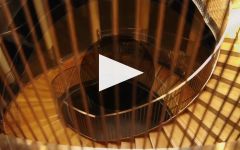

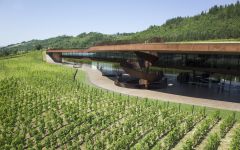

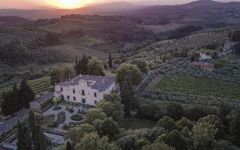
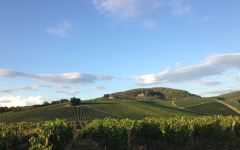
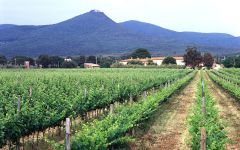
The Antinori family has been committed to the art of winemaking for over six centuries since 1385 when Giovanni di Piero Antinori became a member of the "Arte Fiorentina dei Vinattieri," the Florentine Winemaker’s Guild. All throughout its history, twenty-six generations long, the Antinori family has managed the business directly making innovative and sometimes bold decisions while upholding the utmost respect for traditions and the environment.
Today, Albiera Antinori is the president of Marchesi Antinori with the continuous close support of her two sisters, Allegra and Alessia, all actively involved in first person in the business. Their father, Marchese Piero Antinori, is the current Honorary President of the company. Tradition, passion, and intuition are the three driving forces that led Marchesi Antinori to establish itself as one of the most important winemakers of elite Italian wine. The company is one of the Founding Members of the "Associazione Marchi Storici d’Italia," an association for the protection, support and promotion of Italian historical brands.
The family’s historical heritage lies in their estates in Tuscany and Umbria, however over the years they have invested in many other areas, both in Italy and abroad, well known for producing high quality wine, opening new opportunities to appreciate and develop unique new terroirs with great winemaking potential. Each vintage, each plot of land, each new idea to be advanced is a new beginning, a new pursuit for achieving higher quality standards. As Marchese Piero loves to say "Ancient family roots play an important part in our philosophy but they have never hindered our innovative spirit."

Among Italy's elite red grape varieties, Sangiovese has the perfect intersection of bright red fruit and savory earthiness and is responsible for the best red wines of Tuscany. While it is best known as the chief component of Chianti, it is also the main grape in Vino Nobile di Montepulciano and reaches the height of its power and intensity in the complex, long-lived Brunello di Montalcino. Somm Secret—Sangiovese doubles under the alias, Nielluccio, on the French island of Corsica where it produces distinctly floral and refreshing reds and rosés.

One of the first wine regions anywhere to be officially recognized and delimited, Chianti Classico is today what was originally defined simply as Chianti. Already identified by the early 18th century as a superior zone, the official name of Chianti was proclaimed upon the area surrounding the townships of Castellina, Radda and Gaiole, just north of Siena, by Cosimo III, Grand Duke of Tuscany in an official decree in 1716.
However, by the 1930s the Italian government had appended this historic zone with additonal land in order to capitalize on the Chianti name. It wasn’t until 1996 that Chianti Classico became autonomous once again when the government granted a separate DOCG (Denominazione di Origine Controllata e Garantita) to its borders. Ever since, Chianti Classico considers itself no longer a subzone of Chianti.
Many Classicos are today made of 100% Sangiovese but can include up to 20% of other approved varieties grown within the Classico borders. The best Classicos will have a bright acidity, supple tannins and be full-bodied with plenty of ripe fruit (plums, black cherry, blackberry). Also common among the best Classicos are expressive notes of cedar, dried herbs, fennel, balsamic or tobacco.
